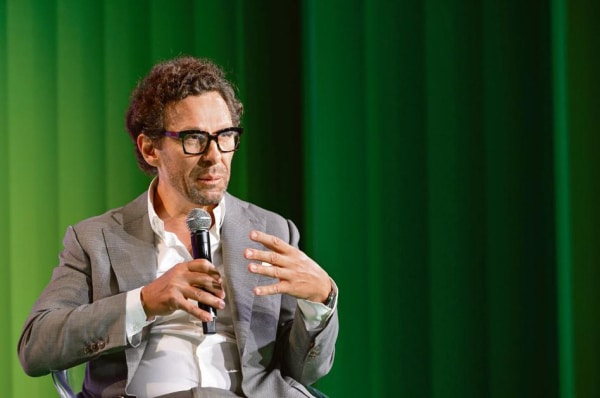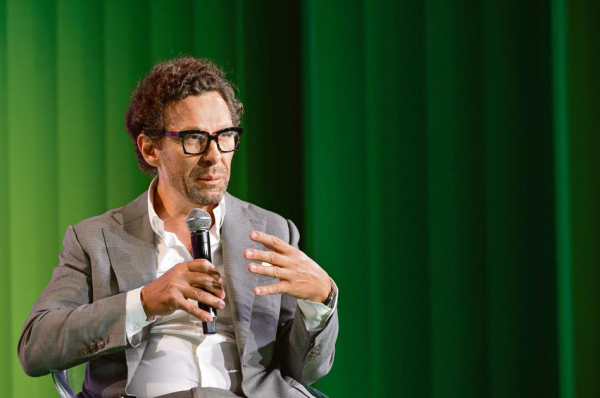Energy transformation is the foundation of a sustainable future for Europe. Experts gathered at Impact’25 discussed the challenges and opportunities of the green revolution.
This year’s Impact has become an arena for heated debates on the key challenges of the modern world. Energy holds a central place among them as a pillar of security, economic stability and sustainable development. As part of the panel “Fuelling Europe’s Future: Dynamics of Energy Policy”, experts discussed the directions of development of European energy infrastructure in the light of global climate change and technological progress. During the discussion, experts unanimously emphasised that Europe today has a unique opportunity to redefine the way it produces and manages energy. From moving away from coal, through the development of renewable sources, to implementing innovations – such as artificial intelligence or energy storage systems – the coming years will be decisive for building a modern, flexible and competitive energy system. A system that will respond to the growing needs of the economy and societies, while remaining environmentally friendly.


The meeting was moderated by Michał Szułdrzyński, a journalist from “Rzeczpospolita”. His guests were: Artur Osuchowski, member of the board for Energy and Energy Transformation, ORLEN; Krzysztof Kilian, energy expert, former president of Polska Grupa Energetyczna; Katarzyna Suchcicka, member of the board, R.Power Renewables; Dorota Zawadzka-Stępniak, president of the board, National Fund for Environmental Protection and Water Management; Tobiasz Adamczewski, vice president, Forum Energii.
The path to decarbonization
The first part of the discussion focused on the inevitable move away from coal and the need to prepare infrastructure for new energy sources. Experts drew attention to the economic and technological conditions that accelerate the energy transformation in Europe. – By 2030 or 2035, we will most likely say goodbye to coal in Poland. This is primarily due to economics, not just regulation. The next five years will be crucial, during which we must prepare the capacity market to support the development of gas power plants and renewable energy sources – emphasized Tobiasz Adamczewski.
The panel continued by highlighting the need to take a broader look at the energy transformation, which goes beyond the energy sector.
– The energy of the future is not only about new technologies in the energy sector, but also changes in heating, industry and transport. The key will be the demonopolization and decentralization of energy production sources, as well as the emergence of new pricing models, such as negative energy prices – noted Artur Osuchowski.
The future of energy will require much greater flexibility and the ability to meet growing energy demands. Technological developments pose new challenges to the sector.
– In the next 10-20 years, the energy sector will look completely different. The development of technologies such as artificial intelligence, the construction of data centers, the development of industry or the electrification of everyday life, including the popularization of heat pumps, will significantly increase the demand for energy. Only renewable energy sources, used in a flexible way, can meet these challenges – said Katarzyna Suchcicka.
Green pillar of competitiveness
Experts strongly emphasized the importance of renewable energy sources – both in the context of achieving climate neutrality and strengthening the competitiveness of the economy. Green energy is not only a response to environmental challenges, but also the foundation of modern, cost-effective energy.


Artur Osuchowski, Member of the Board for Energy and Energy Transformation, ORLEN emphasized that the energy of the future means changes not only in the energy sector, but also in heating, industry and transport. PHOTO: Wojciech Robakowski ()
– Achieving climate neutrality is paramount. We must invest in energy sources with the lowest greenhouse gas emissions, close to zero. The energy of the future must be green, based on renewable energy sources, supported by innovative technologies, and at the same time accessible to society and price-stable – emphasized Dorota Zawadzka-Stępniak.
The conversation continued with the potential of modern technologies, such as artificial intelligence, in optimizing energy systems. Experts pointed out that advanced tools can significantly improve the efficiency of real-time energy management.
– Today, artificial intelligence enables optimization of data flow management, energy demand and supply in real time. AI models allow for better adjustment of energy consumption to current needs, which translates into lower costs and more efficient use of resources – noted Krzysztof Kilian.
Experts agreed that green energy is key to maintaining economic competitiveness, especially in the context of attracting foreign investment. The development of renewable energy sources is becoming a strategic element in building an advantage in the global market.
– The future energy sector must respond to all the needs of the economy so that Poland does not lose its competitiveness. Large amounts of green energy are necessary to attract investments, such as data centers. Renewable energy is one of the key levers increasing the attractiveness of our economy compared to other countries – said Artur Osuchowski.
The key role of the state
In the final part of the discussion, experts focused on the role of the state in shaping the energy market and the need to flexibly respond to technological developments and global changes. They emphasized that success depends on efficient management and adapting regulations to the dynamic environment.
– The electricity market is a reflection of how the state designed it. Currently, it is inefficient, poorly managed, with too many decision-making entities and a lot of waste. The state must actively reorganize this market in a responsible manner, regardless of the model adopted – emphasized Krzysztof Kilian.
The discussion also focused on the importance of cooperation between different technologies in building a sustainable energy system. Experts pointed out that innovations such as energy storage can significantly increase resource efficiency, and the state should facilitate their implementation.
– In the energy sector, we cannot focus on the costs of a single technology, but on the interplay of many solutions. Energy storage facilities, which are becoming cheaper, will allow the use of energy that would otherwise be wasted. The role of the state is not only to create regulations, but also deregulation to accelerate the development of such technologies – noted Katarzyna Suchcicka.
Experts unanimously emphasized that global changes in the energy sector require a bold approach to reforms. Maintaining the status quo may hinder development and limit competitiveness.
– There are significant changes taking place in the world, to which both market participants and the state must actively respond. Let’s not be afraid of transformation, because the future of energy will require a completely new approach – summed up Artur Osuchowski.
The publication’s partner is ORLEN